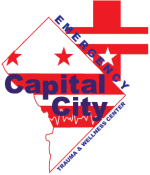6 ways employers responded to worker wellness needs in 2022
MHA Admin
Tue, 09/06/2022 – 13:00
The conversation about mental health has increased in workplaces nationwide in recent years. However, mental health awareness alone is not enough to impact workers’ mental health outcomes. Organizations need to invest beyond awareness campaigns and conversations to address workers’ mental health and well-being holistically. Employers that respond to workers’ needs increase engagement and reduce workplace stress, leading to fewer mental health concerns.
Based on MHA’s 2022 Bell Seal recipients, representing 92 small and large employers in 12 different industries, MHA identified the six most common policy and program areas that employers changed in response to workers’ mental health and well-being needs:
1. Increased or improved mental health benefits
Examples include providing full or partial coverage for mental health services, increasing access to telehealth options, improving its employee assistance program offerings, expanding family-building benefits for the LGBTQIA+ community, and providing crisis childcare or eldercare support.
2. Evaluated compensation equity and role structure
Examples include providing performance-based merit increases, increased compensation transparency and equity, increased minimum wage to reflect the current costs of living, and restructured roles to fit employees’ needs or provide greater clarity and equity.
3. Implemented permanent flexible work schedules and enhanced leave policies
Examples include shifting to a four-day work week, implementing a hybrid work environment, implementing a caregiving policy, offering paid family leave to care for family members with health conditions, and implementing floating and organization-wide “Mental Health Days.”
4. Provided mental health and resiliency education
Examples include small group well-being coaching, an emotional wellness program, incentives for reaching personal wellness goals, and Mental Health First Aid training.
5. Suggested balanced approaches to daily interactions and scheduled meetings
Examples include suggesting five-15-minute buffers between meetings, calendar blocks to focus on other work responsibilities, and adding working hours to email signatures.
6. Maintained connection and mitigated social isolation among colleagues
Examples include offering in-person and virtual colleague-to-colleague support, or hosting “Connection Meetings” and virtual happy hours.
Find a sample support case letter to leadership in MHA’s first-ever Workplace Mental Health Toolkit: Creating a Culture of Support and Well-being, a guide to help organizations develop the foundation for a mentally healthy workplace. The toolkit also prepares employers for MHA’s Bell Seal for Workplace Mental Health 2023-23 application cycle that is now open.







